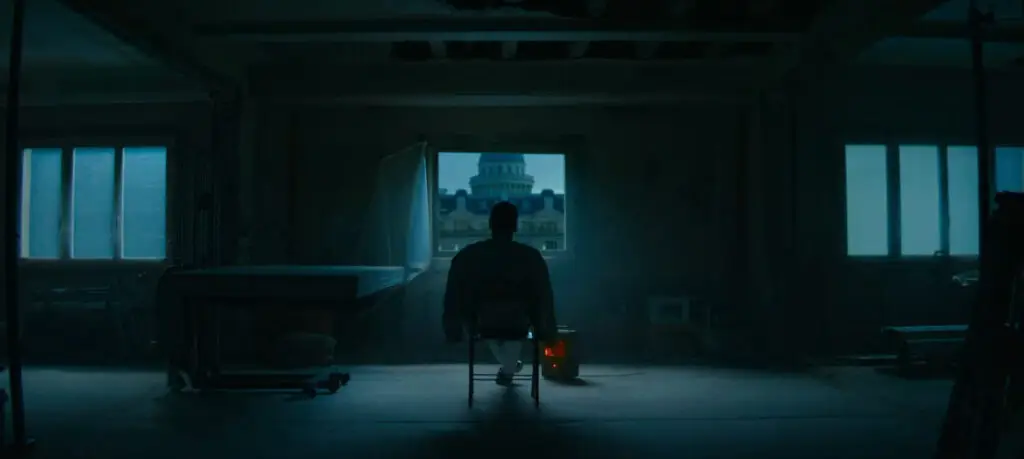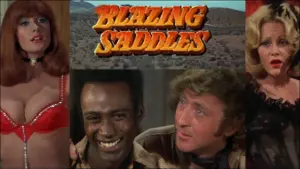Funny, I’d been thinking “I’ve really got to get out and see the new David Fincher movie,” then it pops up in my Netflix feed. That’s the fastest I’ve clicked on the “play now” button since the El Camino spin-off movie for Breaking Bad.
The Killer is a return to form for director David Fincher, though it’s an altered form, being about a coldly calculating, for-profit hitman instead of the sadistic, fetishy serial killers on which Fincher built his reputation (Seven, Zodiac, Girl With the Dragon Tattoo.)
It’s also a return to form in that the plot has a linear, propulsive quality, rather than the almost drunkenly meandering narrative of Fincher’s previous film, Mank. Friends of mine carped that it was nearly unwatchable, in spite of smart writing and chameleonic performances (Amanda Seyfried among the standouts).
The Killer feels like Fincher was recalibrating himself in the same manner of Steven Spielberg making Minority Report after A.I. Whereas for A.I. Spielberg had given over his skills to complete the vision of Stanley Kubrick, Fincher’s Mank had him applying his aesthetic sense to a finely woven, cleverly scripted, densely researched screenplay by Fincher’s late father Jack Fincher.
On a personal level that was no doubt fulfilling for Fincher, but much less so for audiences unversed in Hollywood lore inspired by debates between Pauline Kael and Peter Bogdonovich over who deserved credit for writing Citizen Kane. Fans of Fincher’s ruthlessly dark sensibilities were given a double dose of disappointment when the auteur’s Mindhunter series was canceled after two seasons, even though its story was building up to what could have/should have been an explosive third season.
With The Killer, the Fincher pendulum blade has swung back so hard that even the title goes for the throat. The storyline’s schematic simplicity belies its graphic-novel roots: An assassin makes a mistake, other assassins are sent after him, and he reacts by tracking down his employers and the other assassins. (David Cronenberg’s A History of Violence, another graphic-novel based directorial return to clean edges, had a similarly propulsive plot.)
Michael Fassbender plays the unnamed killer with a Grim Reaper stillness reminiscent of Ian McShane in Sexy Beast. The story, carved into five distinct chapters, begins with a Rear Window like sequence in which Fassbender patiently waits in an empty workspace across the street from a Paris apartment. Looking over the various apartments and people in various phases of their lives, Fassbender’s voice-over thoughts clearly spell out the mental discipline that makes him an effective killer: Stick to the plan. Trust no one. Anticipate, don’t improvise. Forbid empathy. Over the course of the movie, he will repeat these mantras in increasingly ironic ways, suggestive of his own ebbing doubts (minimalist as they are, with Fassbender barely twitching indications).
This killer awaits the arrival of a man, someone unknown to him and to us, he intends to dispatch with a sniper rifle. The movie shows us his meticulous and clinical approach both to observation, but also to covering his tracks. He drinks from his own steel cup, much like a man in prison, and disinfects edges of sinks to remove traces of his DNA to throw off any “forensic elves” investigating afterwards. One arresting image shows him sitting to look at a window much as a political prisoner or a neglected child watching TV.
Screenwriter Andrew Kevin Walker makes a point similar to when he followed up Fincher’s Seven with his screenplay for the non-Fincher-directed 8mm: Most killers aren’t that interesting. In fact, many are boring. Boring people acting out base needs, or in the case of contract killers, for a simple financial reward.
Fassbender’s voice-overs state the point upfront: “I’m not exceptional.” The tired assassin trope gets a worthy update by detailing the adaptations required in the modern world, where locksmith skills have given way to familiarity with Amazon-bought keyfob replicators. Surveillance cameras are everywhere, so he makes himself uninteresting by exploiting Parisian distaste for German tourists.
These wry touches give The Killer a subtle underlying wit to pierce through the movie’s high tension like tiny pin pricks. Even the ironic humor is carefully controlled and meted out: Fassbender listens to The Smiths on headphones to concentrate, and we occasionally hear apt lyrics (“…people who don’t care if I live or die…”), while his many fake IDs are based on middle-aged males from 1970s sit-coms.
Fassbender’s internal monologue has a disaffected tone reminiscent of a Paul Schrader protagonist (such as Oscar Isaac’s in 2021’s The Card Counter), spoken with the haunted voice of a world-weary Don Delillo character. But the monologue gives way to justified paranoia and quiet concentration after the killer makes an accident of timing, and immediately finds himself the hunted instead of the hunter. Worse, he discovers his girlfriend at his hideaway in the Dominican Republic has narrowly escaped the attack meant for him (cue The Smiths’ “Girlfriend in a Coma”).
The movie’s remaining chapters are predictable but highly watchable, with Fassbender becoming both a procedural detective (or anti-detective detective) and a now-vengeful Angel of Death.
It’s become trite to depict assassins who keep multiple long-term storage rentals full of fake license plates and untraceable handguns in zip-loc baggies, but Fincher’s cinematography, editing, and sound are always knife-sharp. Lensman Erik Messerschmidt, an understudy to Fincher’s previous cinematographer Jeff Cronenweth, occasionally sneaks remarkable shots (such as a passenger plane reflected in three directions on a building) just long enough for editor Kirk Baxter to chop them away. In another scene, the passage of time is vividly revealed with an audio-cut between afternoon cicadas and evening frogs.
Whereas the killer’s Anton Chiguhr-like detachment worked for contract kills, he has to get much more personal with his new targets, who themselves are skilled and careful. Even so, his existential objections to empathy are not easily undone, and Fincher’s not about to get sentimental. Only the tiniest hints of character development glint and reflect, in small details and moments where the killer finds that his empathy overlaps with his self-interest, or becomes the practical choice for mitigating the mistakes he’s made (such as revealing his face to an unanticipated security camera).
One objection many will have to The Killer is that its final act doesn’t provide the meat-and-potatoes satisfaction one would usually want from a revenge-based story. The movie’s juiciest and most explosive showdown arrives mid-movie, with a grippingly brutal fight against a monstrous assassin, played by Sala Baker (the bodybuilder behind the armor as Sauron in the Lord of the Rings movies).
With such a seemingly by-the-numbers structure and dissipated conclusion, a casual viewer could be forgiven for finding The Killer empty. But there’s a slow-burn, cumulative method at play here, much as with Fincher’s Zodiac, or Spielberg’s Munich. The list of kill targets becomes less and less the point as the story progresses.
The film is at its contemplative best in a scene where Fassbender confronts another assassin, a woman whose elegant tastes run in stark contrast to the pitbull-owning, walking steroid in the previous chapter. She’s played by the always-excellent Tilda Swinton, and the dialogue one-ups critics with one of the best descriptions of a white-haired Swinton imaginable: “She looks like a Q-Tip.”
Swinton, living her assassin existence at a higher grade of emptiness, attempts to draw Fassbender out of his determined quietude in a one-sided conversation that becomes part of the movie’s recurring theme: How people behave while staring in the face of death. “I’m not a bad person,” says Dolores (Kerry O’Malley), another woman in the killer’s way — more to convince herself than him. Others show hope while at the same time revealing despair: A taxi driver behaving as though he’s innocent nonetheless smokes his final cigarette.
Thus The Killer‘s title is misleading: It’s more about the killed. Some of them go full-denial. Others, feigning ignorance of their misdeeds, reveal complicity. David Fincher’s seemingly shallow hitman exercise turns into a finely tuned exercise in those haunting questions: In the end, is anybody ever truly innocent? And even if they are, does it matter?










